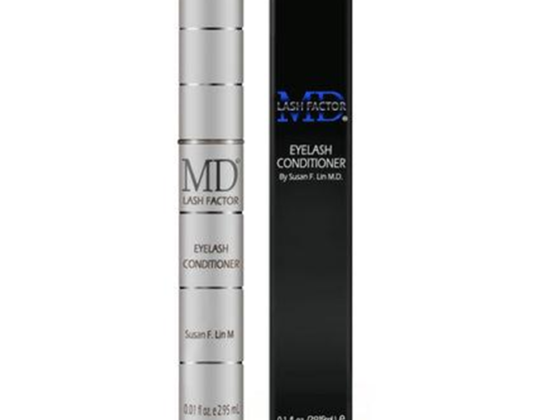Diet can play a major role in skin care. One of the best ways to achieve good skin health is to include essential oil in your daily regimen. An essential oil that is especially beneficial for skin care is coconut oil. Coconut oil has been shown to be effective at reducing wrinkles, acne, and other signs of aging. In addition to being beneficial for skin health, coconut oil is also delicious and versatile.
Skin is the largest organ in the body, and its health is essential for overall well-being.
Oil has been used for centuries as a skincare ingredient and for good reason. Oils have natural moisturizing properties that help to nourish and soothe the skin. They also contain essential fatty acids that are vital in maintaining the health of our skin’s barrier function, which is responsible for keeping harmful toxins out and locking moisture in. When we don’t get enough essential fatty acids in our diet, it can result in dry or irritated skin.
When it comes to choosing an oil for your skincare routine, there are many options available to you. Some of the most popular oils include jojoba oil, coconut oil, and rosehip oil. Jojoba oil is known for its ability to mimic the skin’s natural sebum production, making it a great choice for those with oily or acne-prone skin. Coconut oil is deeply moisturizing and anti-inflammatory, making it ideal for those with dry or sensitive skin. Lastly, rosehip oil is packed with antioxidants and vitamins A & C which help improve hyperpigmentation and fine lines.
Incorporating oils into your diet can also be beneficial for your overall health while promoting healthy-looking skin! Make sure to consume healthy fats such as omega-3s found in fish like salmon or chia seeds. You can also try adding flaxseed or avocado oils to salads as they provide many benefits including improved digestion while providing essential nutrients required by your body’s largest organ!
What is skin oil?
When we hear the word “oil,” our immediate reaction is to think of something greasy and harmful. However, when it comes to skincare, oil plays a crucial role in maintaining healthy skin. Skin oil or sebum is a natural substance produced by the sebaceous glands in our skin. It helps in keeping our skin moisturized, protected from external pollutants and toxins, and maintains its elasticity.
The composition of skin oil varies from person to person depending on factors such as age, gender, diet, and genetic makeup. The primary components of sebum are fatty acids, triglycerides, wax esters, and squalene cholesterol esters among others. When the production of sebum is balanced and consistent with our needs, it helps maintain healthy skin.
However, excessive production of sebum can lead to oily skin prone to acne breakouts while too little production can result in dryness and flakiness. Therefore having a balanced diet that promotes healthy oil production coupled with proper hygiene practices like washing our faces regularly can aid in achieving optimal skin health.
Types of skin oil:
wellhealthorganic.com:diet-for-excellent-skin-care-oil-is-an-essential-ingredient, When it comes to skincare, oil plays a crucial role in keeping the skin healthy and moisturized. However, not all oils are created equal. There are various types of skin oil that cater to different skin types and concerns.
One type of skin oil is jojoba oil, which is known for its similarity to human sebum. This makes it an excellent choice for those with oily or acne-prone skin as it mimics the natural oils produced by the skin, preventing excess production of sebum. Another type of skin oil is argan oil which contains high levels of antioxidants and vitamin E. This makes it an ideal choice for those with dry or mature skin as it helps to deeply nourish and hydrate the skin.
Finally, rosehip seed oil has gained popularity due to its numerous skincare benefits such as reducing hyperpigmentation and fine lines. It contains high levels of essential fatty acids that help to repair damaged cells and promote collagen production in the skin. Ultimately, understanding your specific skincare needs can help you choose the right type of facial oil that works best for you.
How to make your own skin oil:
Making your own skin oil is a great way to ensure that you’re using natural ingredients that are safe for your skin. The first thing you’ll need to do is choose the oils you want to use. Some of the most popular oils for skincare include jojoba, almond, and coconut oil. Each of these oils has unique properties that make them ideal for different skin types.
Next, you’ll need to mix your chosen oils together in a small bottle or jar. You can add essential oils as well if you’d like to give your homemade skin oil a pleasant scent. Once everything is mixed together, shake the bottle or jar well before using it.
When applying your homemade skin oil, start with a small amount and massage it into your face gently. Pay attention to any areas that are particularly dry or prone to breakouts. With regular use, you should start to notice an improvement in the overall appearance and health of your skin.
Summary of the benefits of using skin oil:
Skin oil, particularly natural oils like coconut, jojoba, and argan oil, can provide numerous benefits to the skin. Firstly, it helps to moisturize and hydrate the skin thoroughly without clogging pores or leaving a greasy residue. This is because these oils contain essential fatty acids that create a protective barrier on the skin’s surface and help retain moisture.
Secondly, many natural oils also possess anti-inflammatory properties that can soothe irritated or inflamed skin. They are especially helpful for those with acne-prone or sensitive skin as they can reduce redness and prevent future breakouts.
Lastly, using skin oil as part of your skincare routine can even out your complexion by reducing the appearance of hyperpigmentation and dark spots over time. Certain oils packed with antioxidants can protect against environmental stressors like UV rays that contribute to premature aging.
incorporating natural skin oil into your daily skincare routine offers numerous benefits for those looking to improve their overall complexion’s health and appearance.
Conclusion:
Skin oil is an essential ingredient in a good skincare routine and should be included in any regimen aimed at improving skin health.
In conclusion, adding skin oil to your daily skincare routine can work wonders for your skin. It is essential in maintaining the natural balance of oils on the surface of your skin and can promote healthy cell regeneration. Choosing the right type of oil for your skin type is crucial, as some oils may clog pores and lead to breakouts.
Moreover, incorporating skin oil into your skincare regimen helps combat dryness and dehydration. Dry skin lacks moisture, which causes it to appear flaky and dull. Using a suitable oil can help lock in moisture and improve the texture of your skin over time. Additionally, regular use of good-quality oil promotes elasticity in the skin and reduces fine lines and wrinkles.
Overall, including a facial oil suited to your specific skin type will provide numerous benefits that will leave you with a healthier-looking, radiant, and youthful-looking complexion. So make sure you add this valuable ingredient to your skincare routine today!










